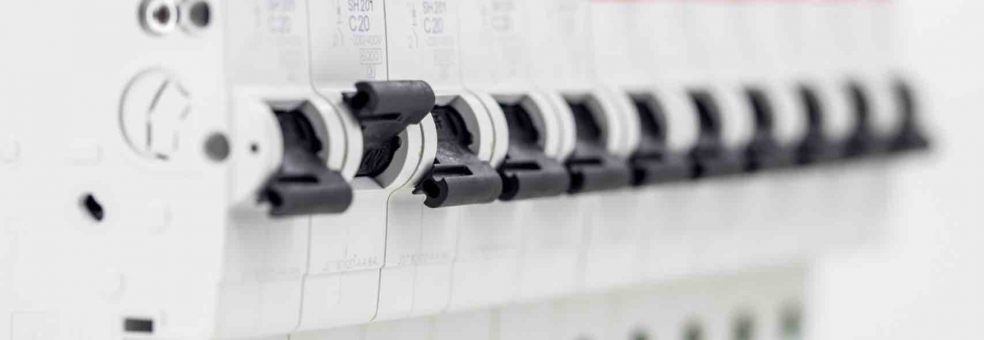
A complete guide to understanding your options when it comes to industrial generators
Having the right industrial generator for your business will mean the difference between disaster and data loss and staying productive. You don't want your business to experience a disaster. Of course not, no one does.
Unfortunately, 35% of businesses will experience revenue losses of over $25,000. Another 61% experience losses between $1 and $25,000.
Prevent revenue loss for your business by creating a disaster plan. As a part of your plan, you need to compare industrial generators.
Use this guide to buy the right one for your budget and business.
What Do You Need?
Before you start looking at industrial generators, you need to know what you need. Otherwise, how do you know that you bought the right generator for your energy demand?
A common mistake is to underestimate your energy requirements. When you do this, you risk causing damage to your equipment. It will cost you a lot more to have to replace all of your machinery.
Calculate Your Need
When you look at a generator for sale, you need to compare the generator capacity with your starting and running wattage requirements. You need the starting and running totals because your equipment will have a stronger power pull upon startup than it does during continued operation.
To calculate your wattage, start by looking at the manufacturer plates that are on your equipment. These metal plates will give you this information.
If there is no plate, then you can check the owner's manual. You may find that the plate or manual gives you the amperage instead of wattage. This is ok; we just need to convert the amps to watts.
To convert amps to watts, you can look up one of the many charts that are available for free online. You can also use a formula to calculate it yourself.
For a resistive load use this formula:
Amps x Volts = Watts
For a reactive load use this formula:
(Amps x Volts) x Load Factor= Watts
Do this for every piece of equipment that you intend to run on the generator. Then add them up, and you have your total energy requirements.
What If You Can't Find Anything?
Sometimes the owner's manual has no information, and the manufacturer's plate is long gone. In this case, you'll need to estimate your equipment's usage.
There are charts online that can guide you. This will let you estimate your equipment's usage.
If you only plan to run one machine at a time, this estimation will be relatively easy. If you plan to run more than one piece of equipment, you'll need to estimate and add them all up.
Buy a Big Enough Generator
Now that you know your need, you can size your generator correctly. Do not try to match your demand and size. What you want to do is pad your requirement, so your generator is capable of providing more power than you need.
By doing this, you won't have to worry about unexpected shutdowns by the generator. Industrial generators have safety measures built in to protect them from overloading.
Overloading your generator puts extra stress on it, which will cause it to not last as long. Sudden and unexpected shutdowns also put extra strain on your machinery.
By buying the right sized generator, you will save money by not having to pair for as many repair and maintenance costs for your equipment and the generator.
You may think that going bigger is automatically better. This isn't the case though.
Automatic or Portable
Since you are in the market for an industrial generator, you are going to be looking at automatic generators. These generators are going to be large enough to power your industrial machinery.
Portable generators tend to be smaller because they are meant to be moved. Because they are smaller, they have less power.
You may hear automatic generators referred to as standby generators. This is because they are always at the ready to kick in automatically when the power goes out.
Safety Is Important
Think about where you plan to put your generator. You'll want to put your new generator at least ten feet from the building. This will reduce any risk of any harmful fumes from entering the building.
You should also install smoke and carbon monoxide detectors in your office. That way if any harmful gases do get in, you'll be alerted.
Noise
Generators are loud; there is no way around it. The good news is that many industrial-sized generators have sound dampening properties.
But this is still something you need to think about when deciding where to put your generator. The other way you can combat the noise is to make sure your generator only runs when it is necessary.
Fuel Type
How do you plan to power your generator? There are many different fuel options, and the one you choose will depend on your usage volume, storage space, and budget.
Diesel
This is an excellent choice for a business that is looking for a readily available fuel that is also affordable. It's also a common fuel used for generators.
Gasoline
Gas is a fuel source that we are all familiar with. It's easily accessible and affordable. The problem is that it is so common.
You may find supply limited in an emergency because of the high demand. You will also have to prepare for fluctuations in price. This can make it difficult to budget.
There is no point in having a generator that you can't run. Consider this if you can't afford, or can't find, the gas to operate your machine.
Another factor to consider is that gasoline only lasts for so long. You need to use it within a year of putting it in your storage tank.
There is water in gasoline, and the longer it sits, the more it separates. That separated water will damage the motor in your generator by causing corrosion.
Plus let's not forget that gasoline is highly flammable.
Natural Gas
If you don't have space for a storage tank on your property, then a natural gas generator may be an excellent option. Instead of installing a storage tank, a natural gas line is installed.
Another advantage is that climate temperature changes are less of a concern with natural gas. This makes maintenance of your line and generator easier.
Expect to have a high consumption of natural gas. Though you can breathe easy when it comes to budget because natural gas tends to be an affordable option.
Propane
Unlike the other fuel options, there is no shelf life associated with propane. It is also considered a clean-burning fuel. Though these benefits come at a raised cost.
Generators that use propane will go through more fuel during operation. You will also need a large storage tank on site to store the fuel.
If you have any doubts about propane, Hank Hill is sure to change your mind. With his over 20 years of experience, he is a strong supporter and a wealth of information about the fuel.
Dual Fuel
If you plan to use your generator a lot, a dual fuel generator is a smart choice. These generators use two different types of fuel.
This allows you to use an affordable fuel option for your daily use. But you can also have a backup power source with the second fuel option.
Single Phase or Three Phase
Industrial generators will come in two options for producing power, single or three phase. The phase refers to how the power is output from the machine.
Energy moves in waves, so a single phase generator produces a single wave of energy. It goes from zero to peak and back again over and over. This up and down action happens very fast though so it's undetectable.
This is how power works in your home. A single phase will be a suitable choice for small businesses.
A three-phase generator has three of these waves. Each one has the peaks and valleys of power. Each wave is out of sync from the others.
This way one of the waves is always in the peak position. You end up with a steady and constant flow of power. A three-phase generator can achieve a higher voltage level because of this.
If you plan to run a lot of equipment or sensitive equipment, then a three-phase generator will be a smarter choice. If you do the first step to determine your energy needs, then it will become clear which type of generator you need.
Your Budget
So far, we've focused on your power demand and the qualities you should look for in your new generator. But we can't ignore the fact that you are limited by what you can afford.
Don't feel obligated to buy the biggest generator on the market. This will result in you spending more than necessary.
Plan your budget for a generator that has slightly more power than you need. That way it can handle any surges.
Correct Operation
Only buy an industrial generator that complies with all laws and codes. If you are unsure of what these are, then consult with your electrician. They will be able to explain building codes and provide suggestions for installation.
They can also confirm how or if you can have your generator directly wired into your existing system. This is required for automatic generators. When done incorrectly, you create a risk of fire.
Start Comparing Industrial Generators
Before you can get started shopping for industrial generators, you need to know what your power needs are. Once you know this, you can narrow down your search to those generators that meet your demand.
Then once you have your generator picked out, carefully plan the location of your generator. This will ensure that you stay safe.
Looking for more information or top news articles? Make sure to browse our website!




















